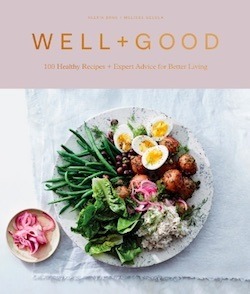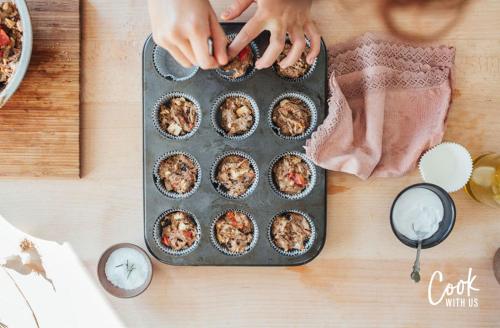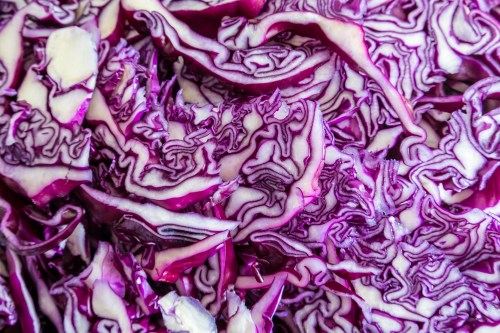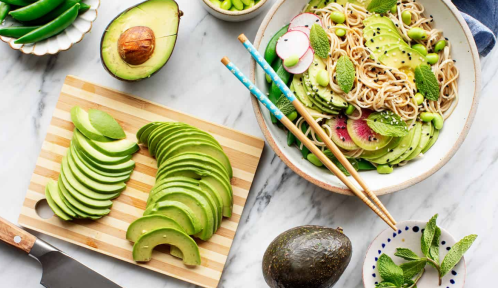Our editors independently select these products. Making a purchase through our links may earn Well+Good a commission
This week on Well+Good, we’re launching Cook With Us, a new program designed to help you do just that. We believe that cooking is an important piece of the wellness puzzle and that everyone can make magic (or at least some avo toast) happen in the kitchen. Sometimes, you just need someone to show you where to start, and maybe a few others cheering you on. It doesn’t need to be complicated, or every day—like most things in the wellness world, a little goes a long way.
As someone whose job it is to write about wellness, I have a (somewhat) shameful confession to make: I hate meditating.
It’s not for a lack of trying; I’m well aware of how it can reduce anxiety and depression, as well as its other major benefits for your brain and overall well-being. But for some reason I just can’t get into it. Even in a sensory deprivation tank the other day, with literally zero distractions, I just floated from edge to edge of the chamber while thinking about what I was going to eat for lunch.
If you find yourself similarly stuck (i.e. you want the benefits of meditation without actually having to meditate), rest assured there is a solution: therapeutic cooking. Basically, it’s using the act of cooking for yourself as a mindful, meditative experience. And it’s a viable meditation alternative, says Harry Ritter, MD, the founder and CEO of Alma, a co-working space for therapists.
“Meditation as a concept is this idea of taking time out of your day, shutting everything down, and withdrawing into yourself for a period of time,” he says. There’s nothing wrong with that per se (again, meditation has so many proven benefits), but the traditional practice of sitting on a pillow, not doing anything, and just focusing on breathing is a tall order for some people. With therapeutic cooking, Dr. Ritter says you can use the act of cooking as another opportunity to create that space for yourself—no culinary degree required.
While any kind of cooking, baking, or creating in the kitchen will suffice, therapeutic cooking is not the same as your usual rush job putting together a smoothie in the morning. Dr. Ritter says that you should only be focusing on preparing food (following your recipe, etc.) without any outside distractions. You set aside time to do it like you set aside time to work out, he adds. This is not about working on the skill of cooking; it’s about using the existing skills you have in order to create space for yourself.
In a clinical sense, it’s unclear whether therapeutic cooking is as effective as meditation, since this concept has not exactly been widely studied. But promising research has shown cooking in general to have mental health benefits—a 2018 review of studies found that cooking interventions can help improve people’s mood and self-esteem, and potentially ease symptoms of depression and anxiety.
Want to see what therapeutic cooking looks like in action? Check out this sex writer’s self-care routine:
Dr. Ritter believes there are a few things at play that make therapeutic cooking work. First, you have to pay enough attention to the task at hand when you cook, which gives your brain a break from thinking about things like how stressed you are about work or if you’re going to run into your ex at the gym. “It’s an opportunity to distract your mind and focus it on something else,” Dr. Ritter explains. Cooking can also help you reconnect with the physical world. “We’re so digitally connected that we sometimes forget to be physically connected. And so the idea of working with your hands, creating with your hands, is actually really powerful,” he explains.
Therapeutic cooking also comes with a perk that sitting on a pillow with your eyes closed does not: you end up with a delicious snack. “You have the opportunity to work on something that has an output at the end of it,” Dr. Ritter says. “There’s something about being able to start something and finish it, and have something to show for it that I think is extremely powerful and really helps people connect and settle themselves,” he says. Traditional meditation absolutely has results (improved well-being, less stress, all that jazz), but if you’re the kind of person who needs a physical reward to feel like they’ve accomplished something, therapeutic cooking might be right up your alley.
Dr. Ritter says it doesn’t really matter if you practice therapeutic cooking in the morning or at night, just as long as you aren’t rushed in a way that makes cooking feel like a chore. “People should do it at a time when they can really engage in the activity and they’re not trying to multitask,” he says.
If you want to get started but aren’t super confident in your cooking skills, Dr. Ritter recommends making eggs in the morning. “It’s a really nice way to start your day,” he says. Sounds much better than my usual routine of scrolling through Instagram before rolling out of bed 10 minutes before I have to be at the gym, inevitably getting there late, and being forced by my trainer to do extra burpees as recompense.

Cook With Us is kicking off with a series of stories that’ll inspire you to sharpen your knives, plus introduce you to healthy recipes we’re sure will become weekday staples at your house (like this sweet potato gnocchi and these gluten-free chicken fingers). And stay tuned for the launch of our new digital community, a place for you to chat, learn, and share your favorite recipes with other wellness-minded home cooks. Think book club takes the kitchen.
Make a promise to start cooking tonight (maybe snag a copy of our cookbook) and meet us in the kitchen.
Sign Up for Our Daily Newsletter
Get all the latest in wellness, trends, food, fitness, beauty, and more delivered right to your inbox.
Got it, you've been added to our email list.











